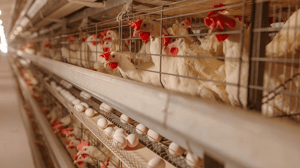Is a Vegan Diet the Cure for Climate Change?Is a Vegan Diet the Cure for Climate Change?
Eating a selectively pescatarian diet may be better environmentally and ecologically than cutting out meat. The Lempert Report: A new study shows that a selective diet is as important to protecting the ecosystem as is eating and buying locally.
June 10, 2019


Ray Hilborn, a professor of ecology and resource management for the School of Aquatic and Fishery Sciences at the University of Washington in Seattle, suggested that eating a selectively pescatarian diet may be even better environmentally and ecologically than cutting out meat and animal products altogether.
“Seaweed, shellfish, mussels, oysters—they don’t need to be fed,” Hilborn said. “They have very, very low impact, distinctly lower impact than being a vegan in terms of any measure you were to use, including water, pesticides, fertilizer and land. They don’t transform the ecosystem nearly to the extent that farming does.”
The main environmental issue with farming and meat production is the destruction of land and ecosystems, he said. It makes sense, then, that cutting down our meat consumption would help to save the world, as there would be fewer animals grazing in artificial ecosystems, right? Wrong, he declared.
With a decrease in meat consumption comes a requirement for increased sources of protein and nutrition of other forms.
Eli Wheat, a University of Wisconsin College of the Environment lecturer, said the best way to eat sustainably is to establish a link with food and farmers: eat and buy locally.
One of the issues with a plant-based diet is how the distance certain foods need to travel has a negative effect on the environment.
About the Author
You May Also Like




